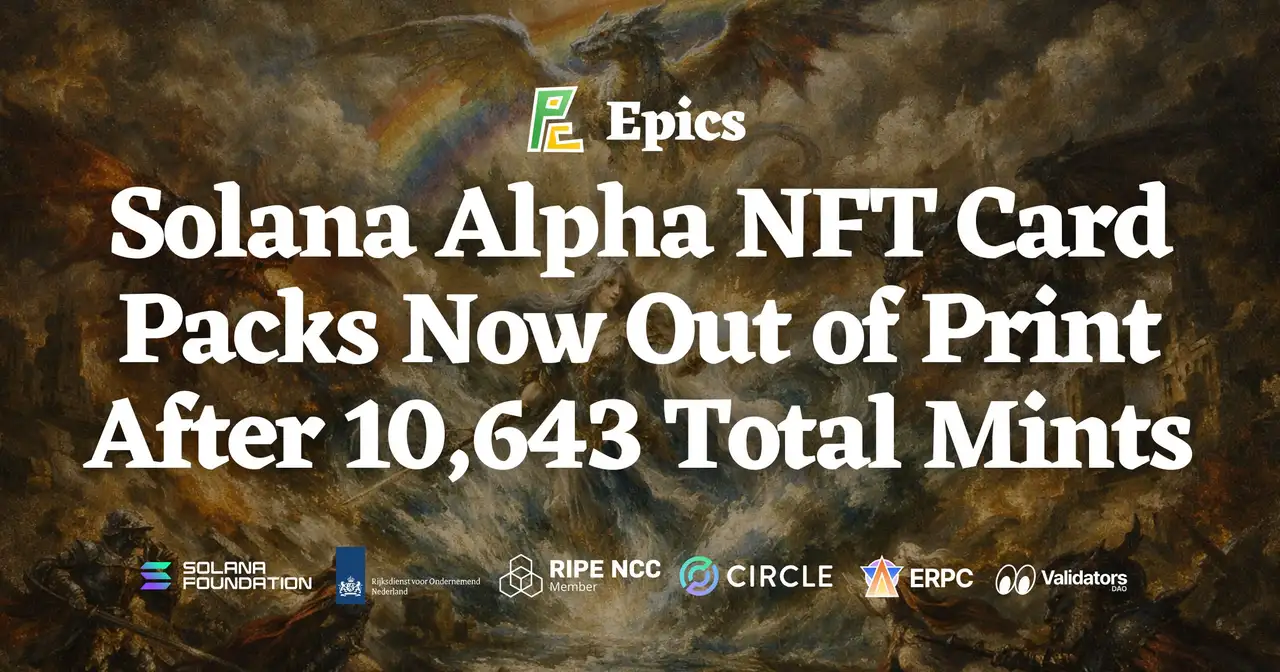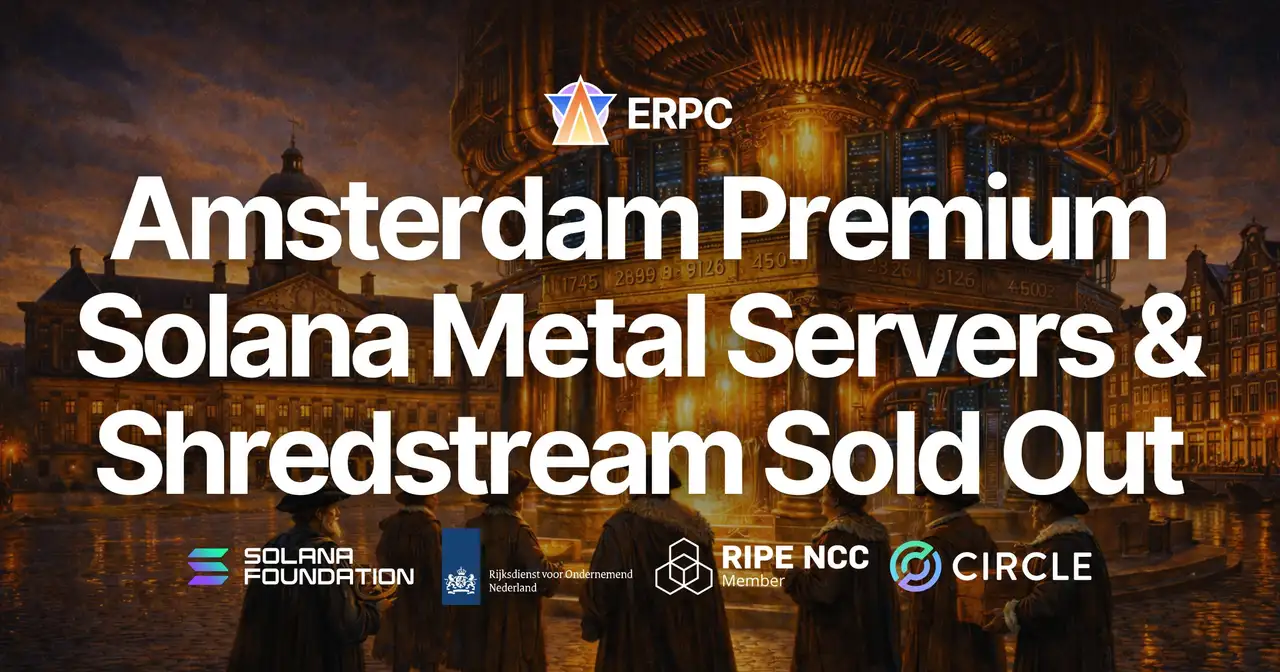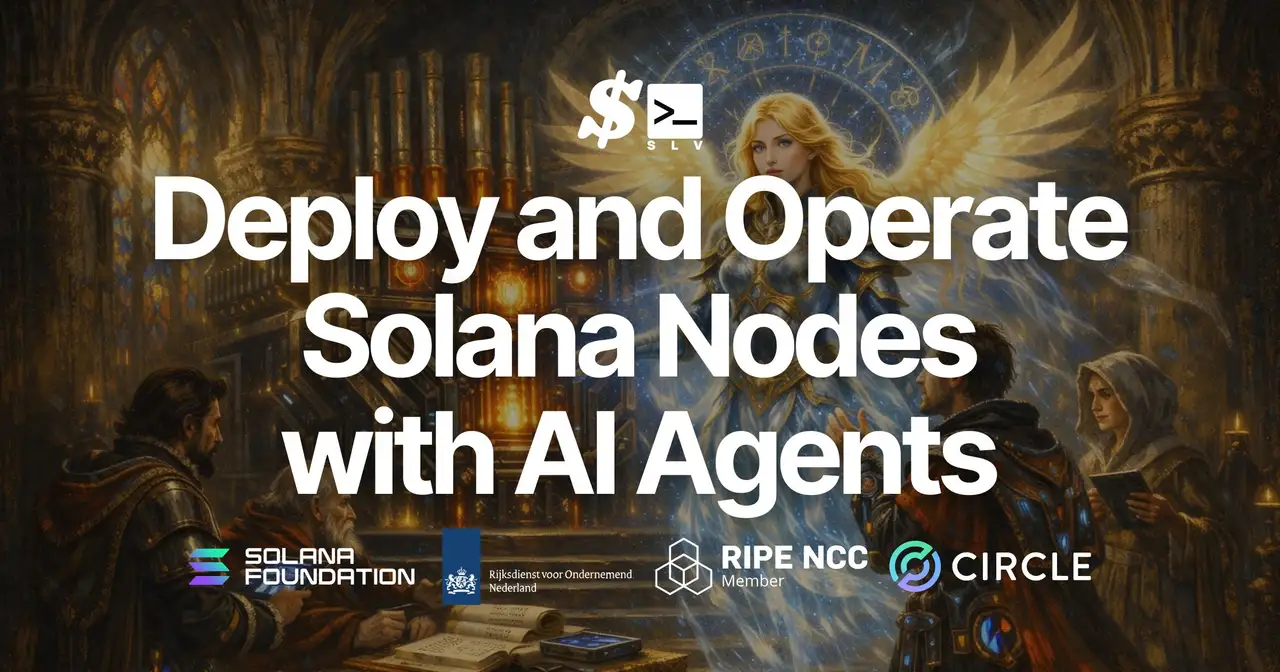ERPC strengthens Solana Geyser gRPC shared endpoints (Chicago / Farpoint), improving stability and throughput across the United States
ERPC strengthens Solana Geyser gRPC shared endpoints (Chicago / Farpoint), improving stability and throughput across the United States
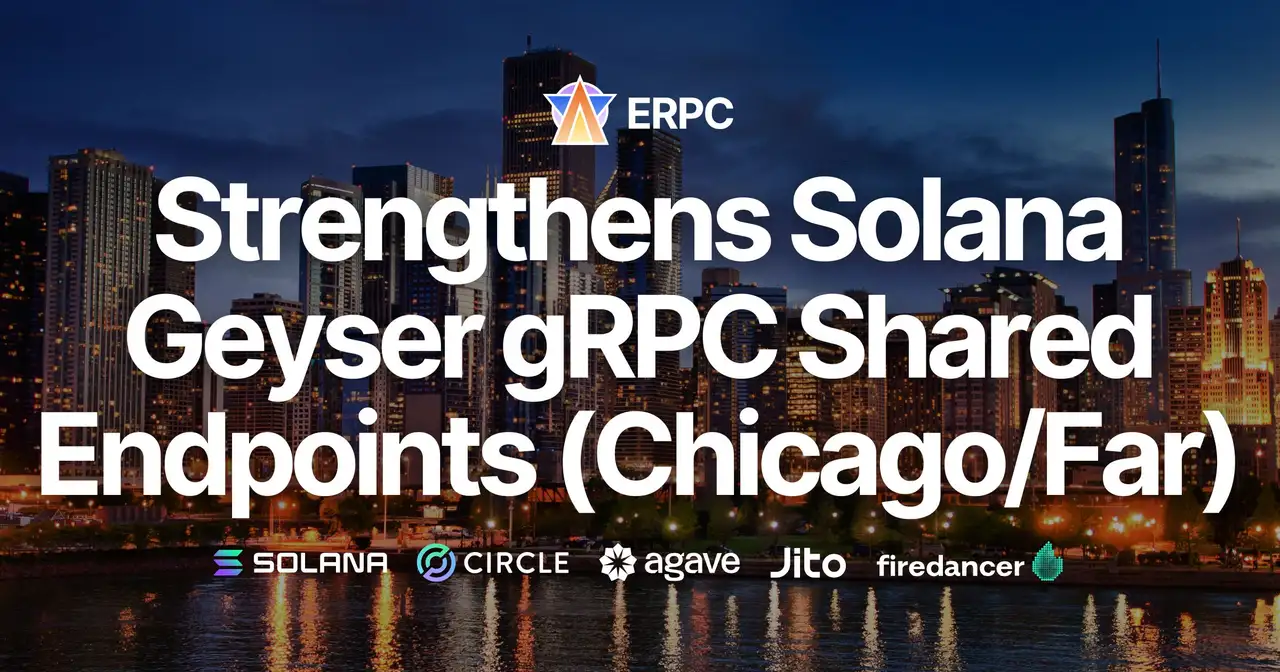
ELSOUL LABO B.V. (Headquarters: Amsterdam, the Netherlands; CEO: Fumitake Kawasaki) and Validators DAO have expanded node capacity for ERPC’s Solana Geyser gRPC shared endpoints in the Chicago and Farpoint regions.
Driven by rapidly growing access demand across North America and globally, this expansion has significantly improved connection stability and throughput throughout the United States.
Driven by rapidly growing access demand across North America and globally, this expansion has significantly improved connection stability and throughput throughout the United States.
The upgraded nodes adopt a high-performance configuration powered by the latest 5th-generation AMD EPYC CPUs.
Compared to previous configurations, both processing capability and throughput have improved further, enabling faster and more stable data handling.
Compared to previous configurations, both processing capability and throughput have improved further, enabling faster and more stable data handling.
Background
ERPC continuously advances optimization of communication paths across the Solana network.
In North America, traffic has been increasing around Chicago, which functions as a core hub connecting the eastern and western regions of the United States.
In North America, traffic has been increasing around Chicago, which functions as a core hub connecting the eastern and western regions of the United States.
Farpoint is a dedicated point that handles traffic from resources geographically distant from any region and from nodes whose origin is difficult to identify. Because long-distance streams are inherently more demanding, ERPC’s gRPC continuously measures ping latency and automatically selects the nearest location. By consolidating and isolating local test nodes, nodes distant from every major region, or nodes suspected of abnormal or malicious traffic on the Farpoint side, the overall throughput and resilience under load are improved.
With this node expansion, stability and processing efficiency have improved across North America and contributed to performance gains globally.
Technical upgrades
- Improved processing performance with 5th-generation AMD EPYC CPUs
- Expanded concurrent connection handling on gRPC nodes
- Optimized load-balancing algorithms to stabilize peak-time traffic
- Improved memory efficiency for high-speed stream transfers
- More uniform latency across North America and improved stability on reconnect
These upgrades deliver particular benefits for latency-sensitive applications such as real-time data streaming and high-frequency transaction processing.
DoubleZero connectivity and Chicago’s strategic role
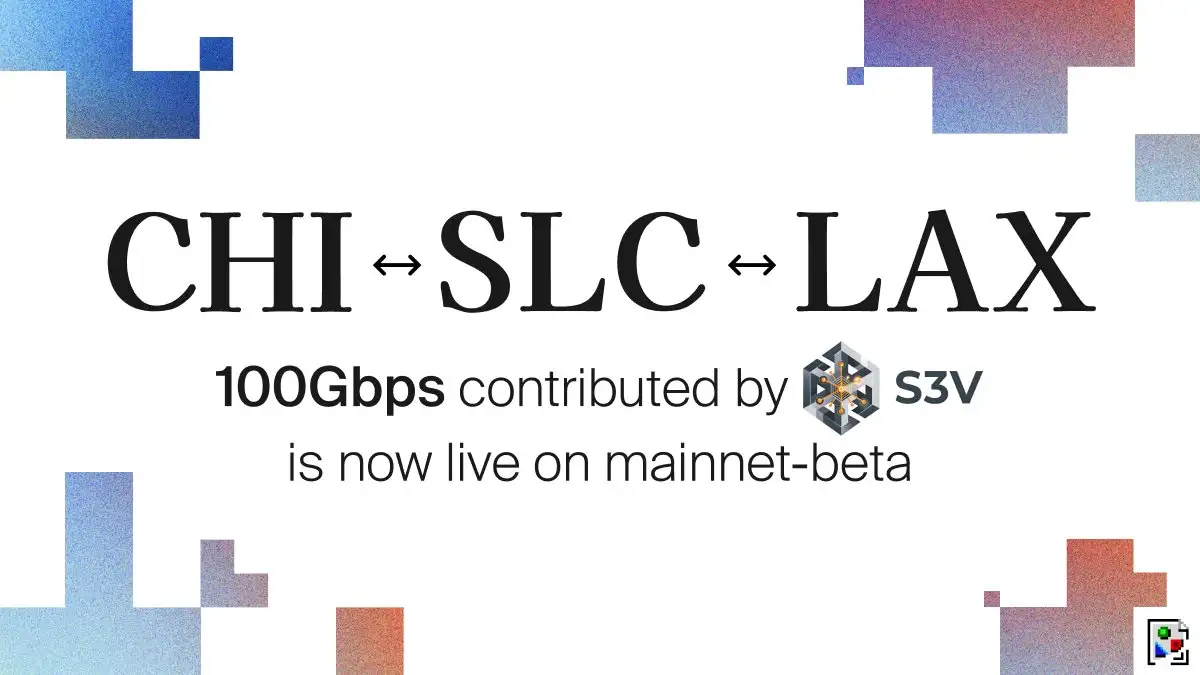
Alongside this expansion, a 100 Gbps dedicated route connecting Chicago (CHI), Salt Lake City (SLC), and Los Angeles (LAX) has gone live.
This strengthens data pathways from the U.S. Midwest to the West Coast, enabling wide-area, low-latency, and stable communication.
This strengthens data pathways from the U.S. Midwest to the West Coast, enabling wide-area, low-latency, and stable communication.
Chicago is also connected at high speed to the New York area on the East Coast through major networks. As a central hub on the continent, it relays traffic along the shortest paths between both coasts.
What is DoubleZero
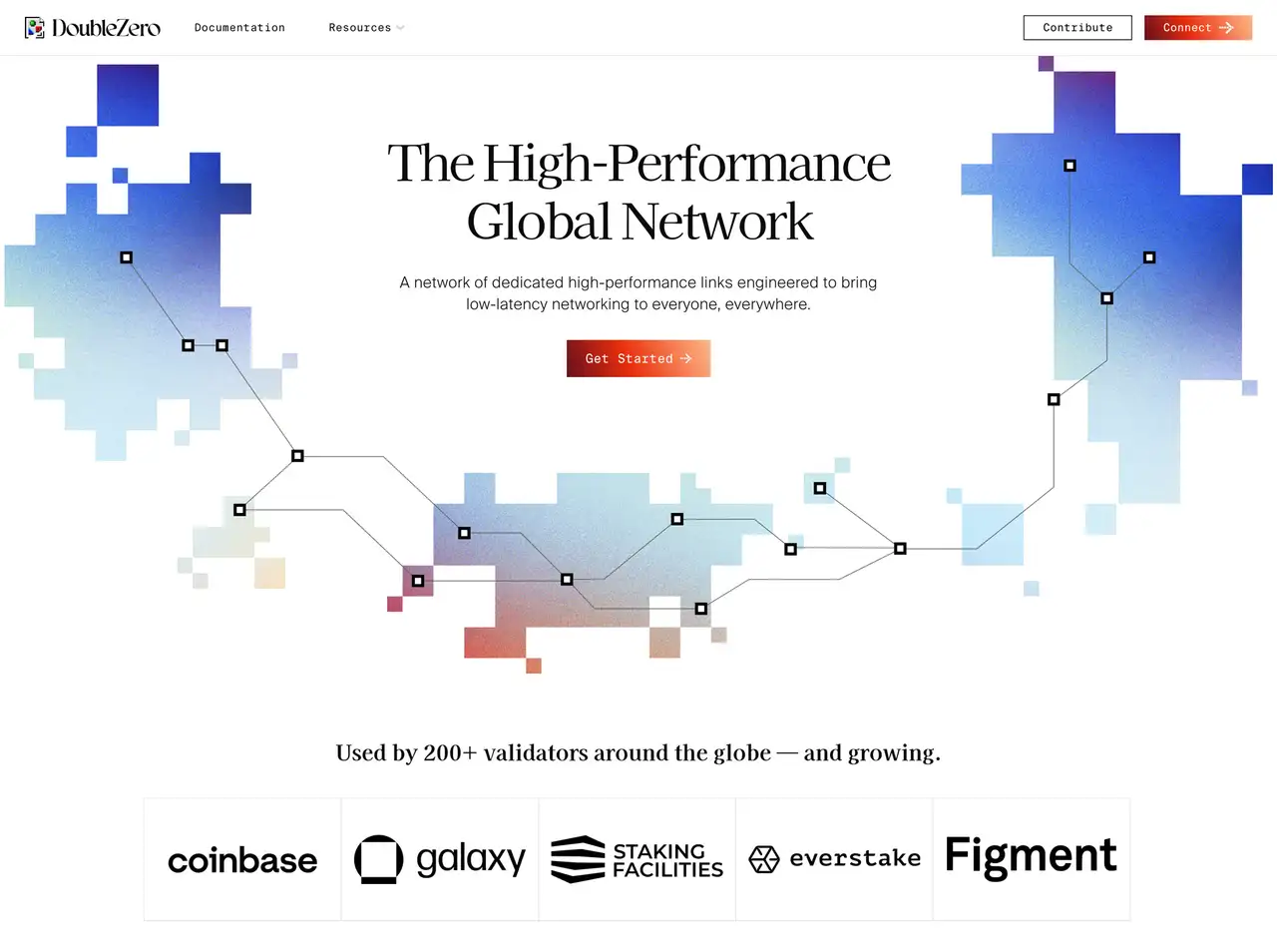
DoubleZero is a dedicated fiber network that directly connects Solana validators and RPC nodes.
It mitigates congestion and route changes common on the public internet and transports data along the shortest possible paths.
It mitigates congestion and route changes common on the public internet and transports data along the shortest possible paths.
More than 200 validators, including Coinbase and Galaxy, participate in this dedicated network, supporting Solana’s overall stability and speed.
Through DoubleZero, ERPC operates SWQoS endpoints, Shredstream, and gRPC, delivering a lower-latency and more consistent communication environment.
Through DoubleZero, ERPC operates SWQoS endpoints, Shredstream, and gRPC, delivering a lower-latency and more consistent communication environment.
DoubleZero: https://doublezero.xyz/
Solana RPC Bundle plan
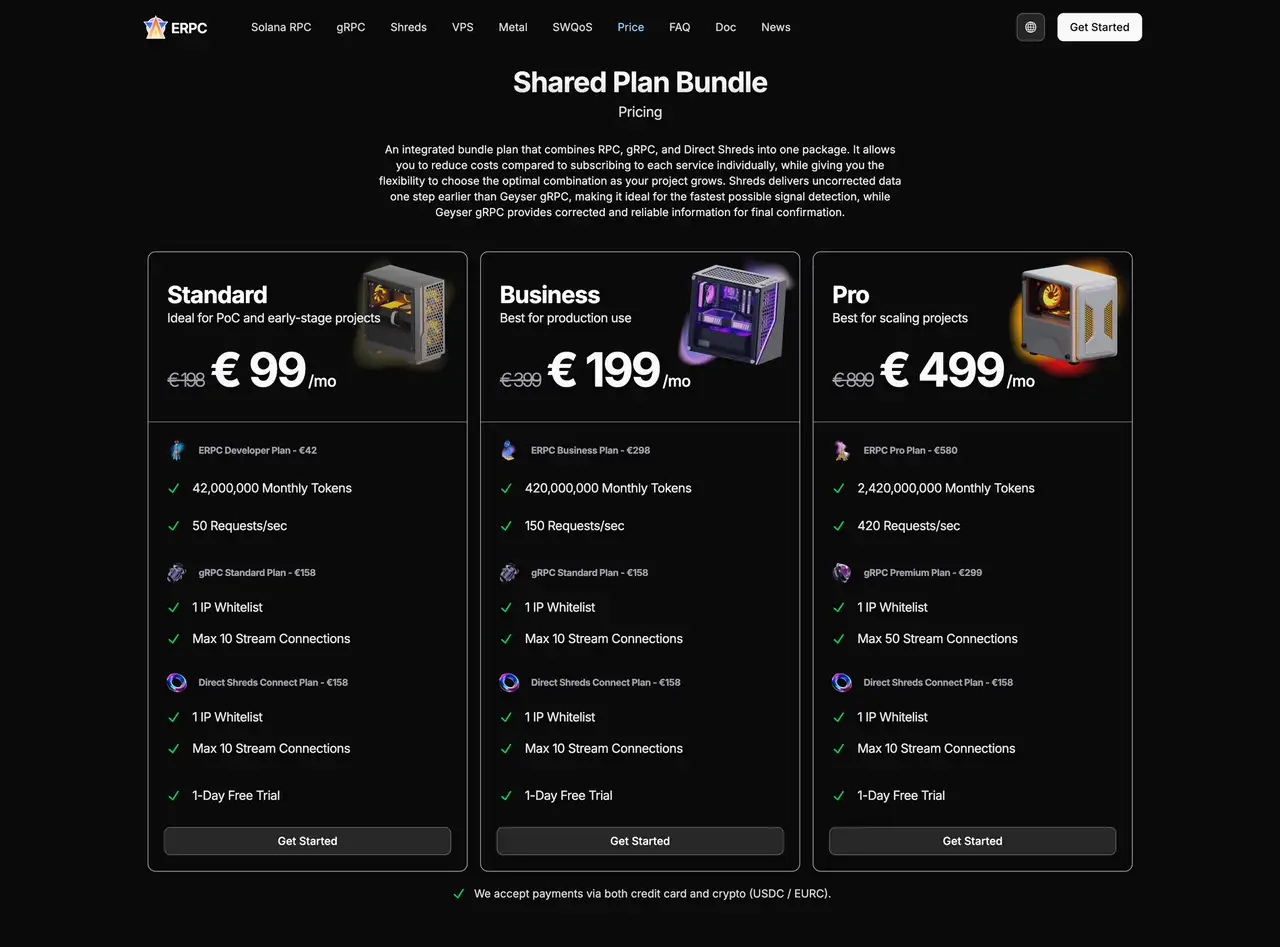
Many developers begin using Solana’s real-time streams with WebSocket or Geyser gRPC. Because the data is already decoded, integration is straightforward, examples are abundant, and the learning curve is low.
Professional teams leverage the faster Shredstream. The Bundle plan meets the strong demand to keep apps stable on gRPC while progressively adopting Shreds for higher speed.
For teams that wanted to move to a faster connection but faced barriers in environment setup or cost, the Bundle lowers those barriers. If you already run production-grade RPC and gRPC connections, Shredstream is included at a lower total price through bundled pricing.
You can quickly build the base application with RPC and gRPC, and within the same environment learn and migrate toward higher performance with Shredstream. Advanced teams may directly ingest both processed and confirmed data via Shredstream alone, which requires a custom client. The Bundle provides a reliable path for receiving Shredstream data and serves as a bridge to this advanced configuration.
The Bundle’s gRPC has no filter restrictions, and during development it also supports RPC on both Devnet and Testnet.
It is a practical standard plan for starting Solana development and transitioning smoothly into production.
For onboarding or migration inquiries, please contact the Validators DAO official Discord.
- Validators DAO official Discord: https://discord.gg/C7ZQSrCkYR
Challenges ERPC and Validators DAO address
- Transaction failures and latency variability common in RPC environments
- Performance limits imposed by many infrastructure providers
- The significant impact of network distance on connection quality
- Limited access to high-quality infrastructure for smaller projects
During the development of Epics DAO, a Solana NFT card game project that supports open-source development, we faced the challenge that high-quality, high-speed Solana environments were difficult to obtain. We built our own platform and now provide ERPC and SLV based on that expertise.
Financial applications are especially mission-critical: latency and errors directly affect user experience. In Solana development, distributed validators and Web3-specific structures make it hard to see the whole picture, and many teams struggle with latency and instability.
We provide the high-performance foundation required by the Solana ecosystem, improving both developer and user experiences. ERPC and SLV are positioned as integral parts of this mission.
- ERPC official site: https://erpc.global/en
- SLV official site: https://slv.dev/en
- elSOL official site: https://elsol.app/en
- Epics DAO official site: https://epics.dev/en
- Validators DAO official Discord: https://discord.gg/C7ZQSrCkYR


